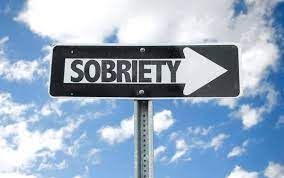Meditation has been found to support addiction recovery since it can help you feel calm, cope with triggers, and ultimately, help you to avoid a relapse. Although meditation cannot wholly replace a full addiction treatment program with professional medical support, it can still be a helpful tool.
Many rehabilitation facilities include mindfulness and meditation as therapy techniques. Whether you are currently battling an addiction, in treatment, or have been sober for many years, practicing meditation can be incredibly beneficial for your recovery.
What is Meditation?
Meditation is a mind and body activity that is intended to promote feelings of calmness and relaxation. It can also help people improve their well-being and cope with illnesses.
You can begin meditating by sitting comfortably in a quiet environment. Next simply and effortlessly notice your thoughts as they come and go, allowing internal and external distractions to pass by without assessing them. Meditation may also involve deep and purposeful breathing during times of stress.
There are two main types of meditation. These types include guided meditation and unguided meditation. To practice guided meditation, a trained meditation or mental health professional will guide you through the session and work with you. Unguided meditation simply refers to meditation that is practiced on your own.
How Does Meditation Help Someone with an Addiction?
For those dealing with drug and alcohol addictions, everyday stressors can be challenging to cope with and may even contribute to a relapse. Multiple studies have concluded that mindful meditation can reduce certain symptoms like anxiety, depression, poor sleep, and drug cravings. Meditation can also help people feel more aware of their thoughts and have better control over their emotions.
Compassion with Meditation
As you begin to simply allow thoughts and distractions to come and go, you may notice all kinds of wanted and unwanted thoughts / emotions. This is completely normal. It is important to keep an open mind no matter what comes up, and understand that there are people everywhere experiencing very much the same thing.
By sitting and allowing without getting involved, it is allowing your mind and body to activate its natural healing capabilities. Much of the excess thoughts and feelings are simply reverberations of past experiences, so this sitting meditation allows all of the noise to pass by. At first it may seem daunting, but as with anything, practice makes perfect.
Sober Living at Tharros House
Tharros House is a sober living community located near Boston, Massachusetts. Sober living communities are a great place for sober individuals to thrive and continue working on their sobriety among peers who share similar goals. Contact us today so that we can help you decide if our sober living community is right for you.











